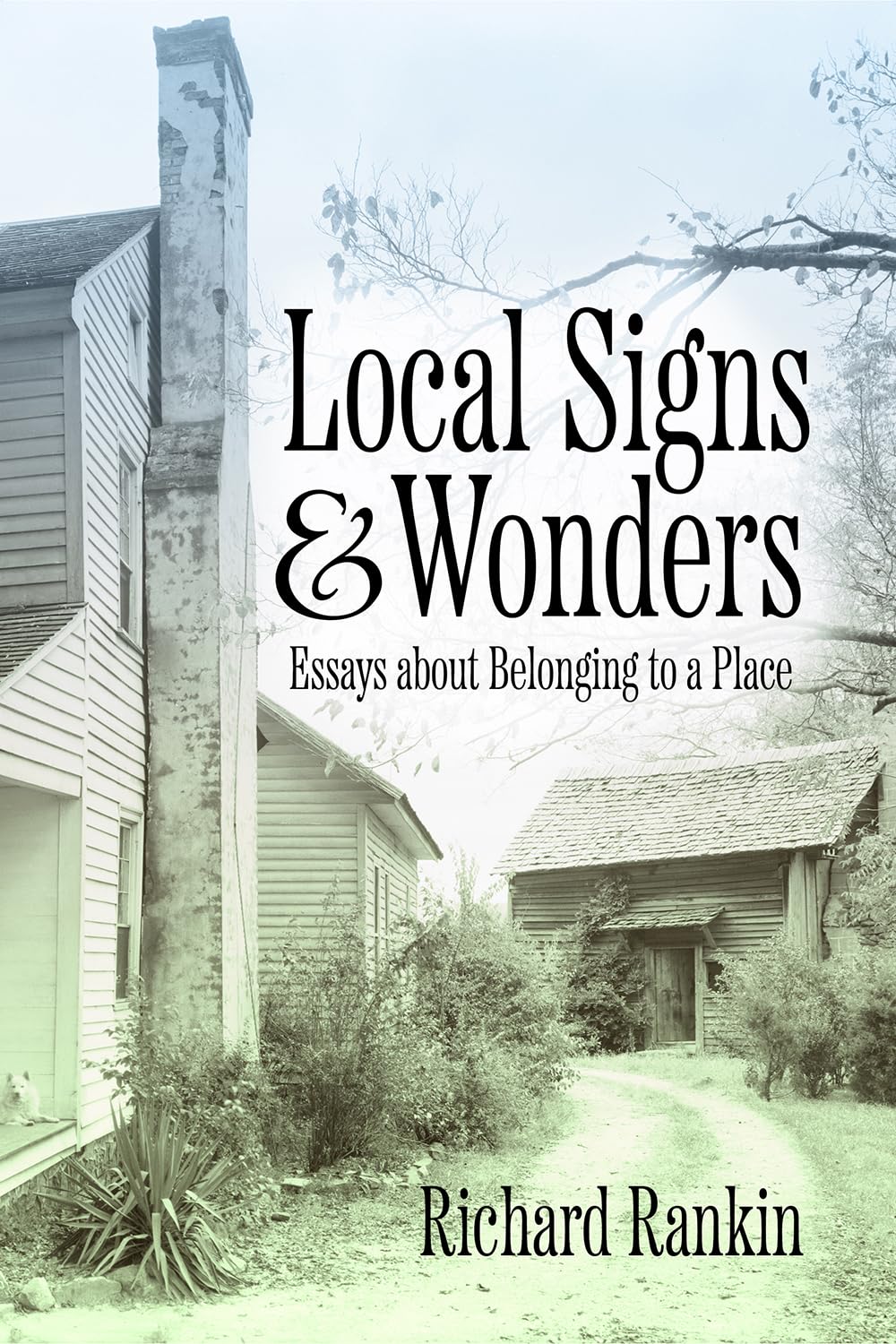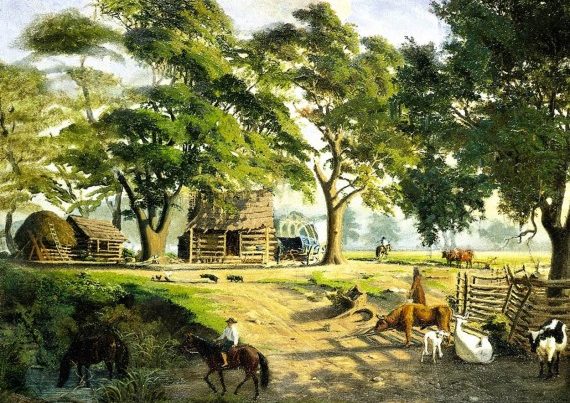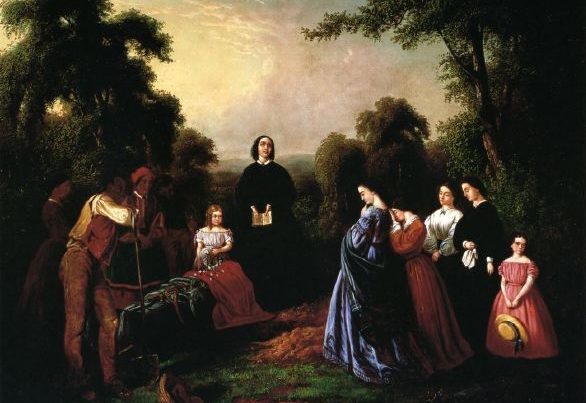A review of Local Signs and Wonders: Essays about Belonging to a Place (Mercer University Press, 2024) by Richard Rankin.
Richard Rankin’s ancestral homestead, founded in the 1760’s, is located about twenty miles west of Charlotte, North Carolina. This book is an exploration of what could be called the two dimensions of stewardship: local and cosmic. Stewardship in the local dimension—“about belonging to a place,” as Rankin puts it—is self-evident. We can only steward, nurture, restore, guide, parent, etc. what is given to us—what is born to us, or what we are born into. Thus does stewardship touch the hem of destiny and of history, of acceptance and gratitude. And from that point we embark upon the cosmic dimensions of the human soul.
Rankin is a good chronicler of what it was like to grow up on, or near, his family’s farm—about exploring the woods, fishing, marksmanship, quail hunting, cock fighting, wild dogs. The stories of local people and relatives are interwoven seamlessly with all these activities. It was all grounded in the farming that took place on the land until about the 1970s, when family farms began disappearing. His memory of the old Rankin oak tree evoked in me sad memories of my grandmother’s place in Rome, Georgia—“Seven Oaks.” The oak tree I remember must have been about the size of the Rankin oak—a huge, solid, silent witness over many generations. That oak is gone now, with “Seven Oaks” turned into a shopping mall.
Rankin touches on the cosmic dimensions of stewardship when he tells of his efforts in combatting and arresting soil erosion. He writes that, despite the mundane nature of his work, “I became convinced I was a slow-motion, small-scale actor in the larger drama of re-creation.” Such work seemed to him “a metaphor for the way the Holy Spirit involved itself” in creative human activities. It touched upon his Presbyterian faith: “There was a redemptive quality to my soil protection that seemed profoundly Christian.”
For yes, surely it is Christian. But it touches any human soul who feels the deep mystery of the Divine Presence within. Stewardship is also important in other religions. For the Hindus, man’s inmost core is one with the eternal Brahman: ‘That art Thou!’ And it is man’s responsibility to sustain that divine connection. In the Hebrew biblical tradition, man was made in the image of God and granted dominion over the earth. The connection of dominion with stewardship would have been more evident if later generations of Christians had remembered that this dominion was granted to unfallen man. In Islam, man is the Viceroy placed by a transcendent Master in and over creation. As Charles Le Gai Eaton has written, “Man is either a Viceroy or else he is an animal that claims special rights by virtue of its cunning….” And if he truly accepts the viceregal function, he bears, in some sense, “the burden of creation” (King of the Castle: Choice and Responsibility in the Modern World. Cambridge, 1990).
We are certainly living today with the consequences of the failure to develop the stewardship ethic. Richard Rankin mentions exploding cities, suburbanization, global warming, and the ecological dangers of global trade. But Local Signs and Wonders is about much more than that, for Rankin knows about place, continuity, responsibility and the soul. The deep truth is that man cannot have a soul unless he knows, and loves, a place. And such knowing and love are deeply connected to culture and to art. But the message being drummed into us today by the technocratic elite is that these things don’t matter. It’s all about power and money and efficiency. Will the human being survive this new age of predation that we ourselves have brought into being? Will the human soul survive?
Perhaps Richard Rankin’s book may signal the beginning of a new era of profound soul-searching about our responsibility to Creation. For we need new depths of thought and understanding to arm ourselves for the battles to come. Southerners, with our history and our memory, may be appointed to lead the charge to this new spiritual and philosophical era. Local Signs and Wonders is a great place to start.







One Comment